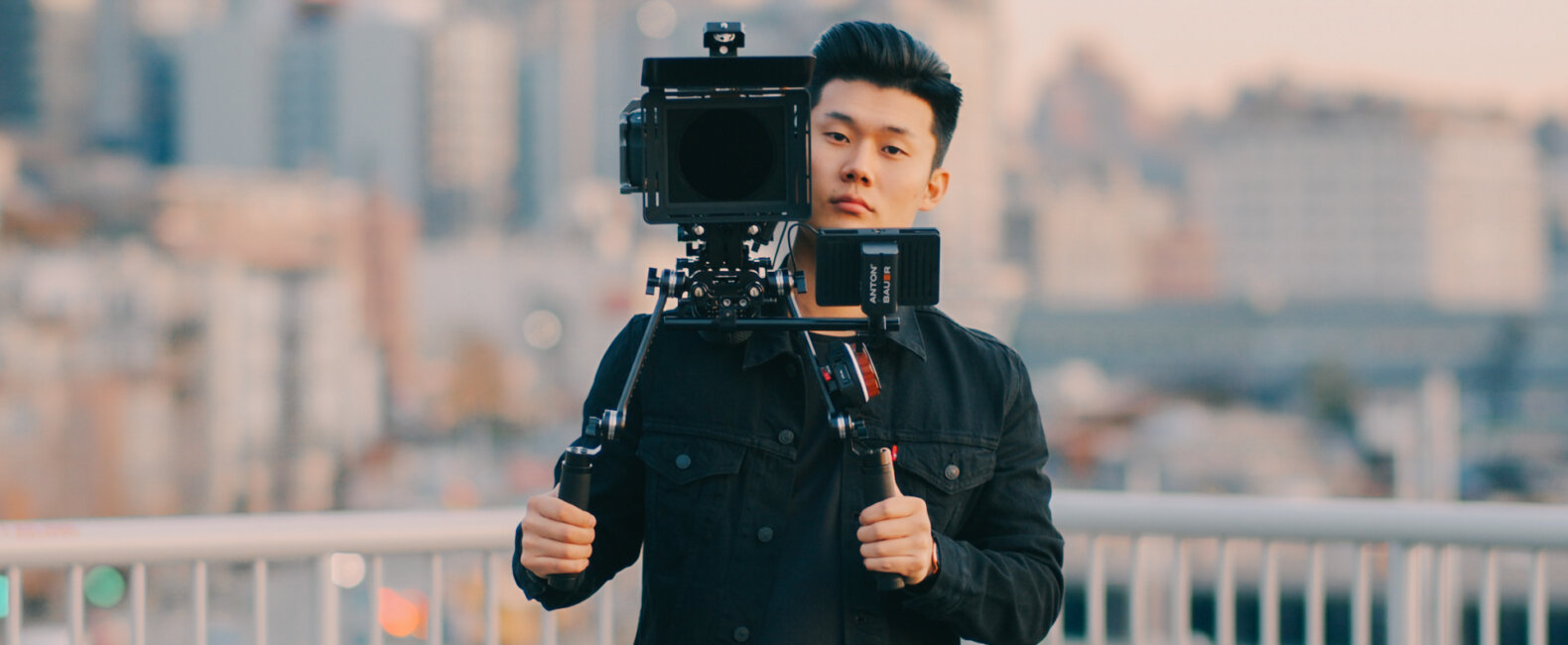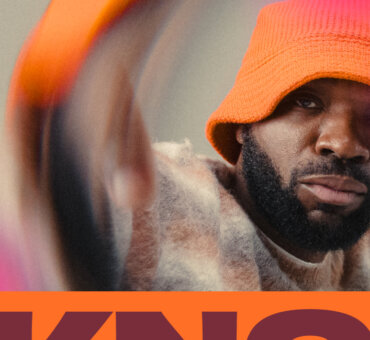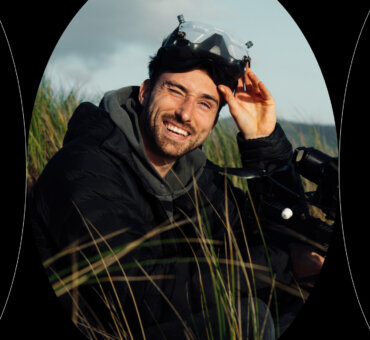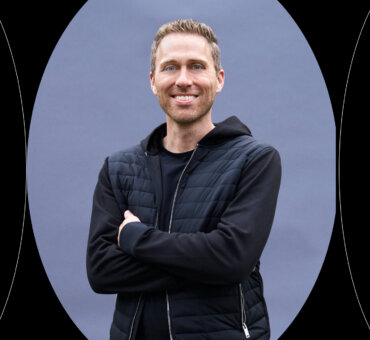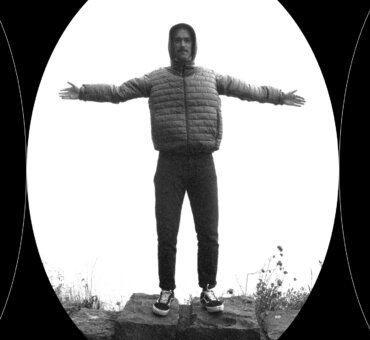When he’s not recording his podcast Midconvo or developing his upcoming creator program, filmmaker Edward Lee is working with iconic brands like Sonos, Nike SNKRS, Lincoln, and more. Hear more from the content creator on what keeps him inspired, his advice to new filmmakers, and why he trusts Musicbed for the right music for his films.
Musicbed: What sparked your passion for filmmaking and storytelling?
Edward Lee: My passion for filmmaking and storytelling really started with photography first. I just loved being able to capture a moment in time to look back on, but eventually that passion moved into the video format. You know, just being able to capture moments and document life, which is something that I really love to do. And then from the commercial side of things or product videos, I personally just thought creating something from scratch and looking at an empty video timeline just gets me really inspired. It’s hard sometimes, but seeing a finished product from when it was just an idea is something that gets me very inspired creatively and just fires me up.
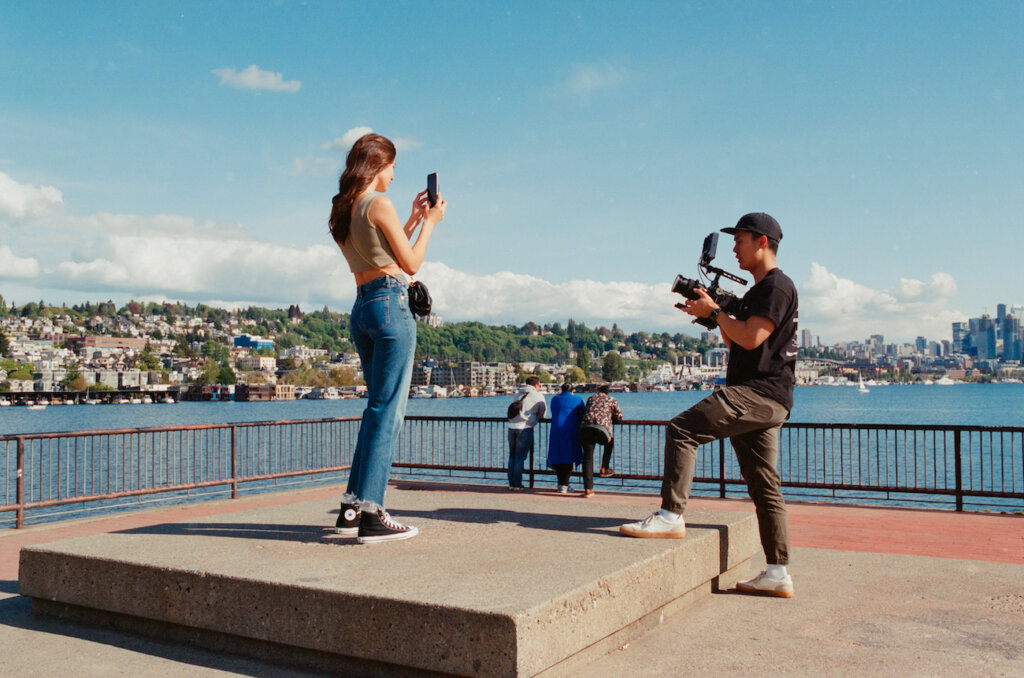
What keeps you motivated and creatively inspired?
Traveling definitely sparks some creativity inside of me. But as far as motivation goes, I just love the process. I try to love the process as much as possible—working towards my dreams, working towards my goals, and staying productive. Those things really keep me motivated and I know that it comes and goes. But for the most part, when I’m locked in and when I’m working towards something bigger than myself, it really helps keep me motivated and just creatively inspired. Also, seeing other creators pushing boundaries. Watching movies, or even a song—anything that makes it feel different or breaks the normality that we face on a day-to-day basis really gets me inspired.
What makes a story visually appealing? What role does music play in storytelling?
A visually appealing story always starts with lighting. When something is lit really well, whether that’s naturally or artificially, lighting just plays such a big part in setting the tone, the mood, just overall how a video is perceived. Also, just storyline, making sure it has a good story because even if there’s good visuals. If you don’t have a good story or there’s no objective really at hand, it just doesn’t make for a great video. I also think photography was a huge help when it comes to filmmaking. Making a story visually pleasing also comes down to composition. When you’re using composition intentionally, it can really draw the viewer in and help tell a story, which just ultimately, when you tie all composition, lighting, and colors all together, it really immerses the viewer into a video and that’s the part that I love. Music plays a huge part in storytelling because when you’re living your life, you’re constantly listening to music. Whether that’s the gym, your daily life, or even vacationing. A lot of times there is music involved and it’s the same way when you’re trying to immerse a viewer into a video. The music choices that you decide on really can either bring the mood up, bring it down, make it serious, make it lighthearted, and all happening in the background subconsciously through music. And it’s really just fascinating.
How important is music in your work?
Music is extremely important in my work because it really sets the mood. It can take a normal-feeling piece of content to the next level with the proper song. And everyone knows that as much as a photo or a video shot can make you feel a certain type of way , nothing quite sparks something in you as a song. Some people just really resonate with music. And it’s the same way when you add that perfect song to a video, it can just really hit home for anyone watching your content.
What advice would you give other filmmakers and creators who are just starting their careers?
One piece of advice that I would give to creators who are just starting is to try everything, try all the different types of songs, try all the different types of niches. Don’t be so stuck in your own way. Experimenting is the best way to hone in on your style. When you’re first starting out, it’s easy to think, “I’m going to choose this niche, stick to this color palette and stick to this type of music and I’m going to be successful”, but that’s just not the case. If you talk to anyone who’s had any measure of success in the industry, it just comes from trial and error. So the advice that I would give is just start trying very early on. Don’t be afraid to fail and just continue to go forward. Even when it feels unsure, it’s better to be unsure and you’re experimenting than to stick to a lane that just isn’t working for you.
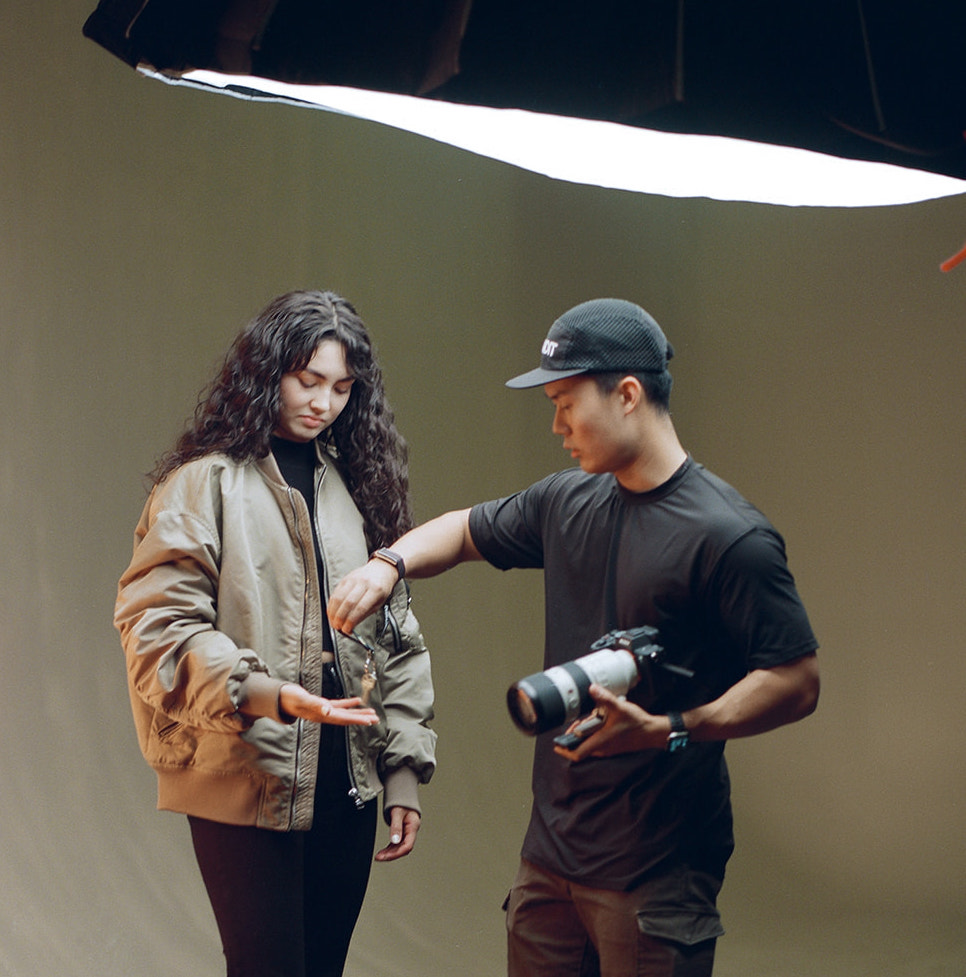
How do you find the balance between pushing boundaries creatively and delivering what your client wants or audience wants to see?
Trying to find the balance between pushing boundaries and delivering what the client or audience wants is a tough one. I try my best to adopt the ‘one for you, one for me’ mindset. This comes to social content and client work, but more-so my own personal content. With the algorithm now and everyone trying to go viral every day, it’s very important that you don’t fully immerse yourself in that algorithm game or try to grow in followers only because you’re sucking the art out of it. But at the same time, you don’t want to be so focused on art only and neglecting all the tricks and the way to grow on social if growing on social is definitely one of your goals.
So for me, it’s always if I find myself leaning one way or the other too much, I just adopt that one for you, one for me. One piece of content that I create will be just for me. It’s my art. It’s my creative expression. But the second piece of work will be for the audience, for the algorithm, for the client. And I kind of alternate back and forth between those two to find that good balance. Of course, when it comes to client work, it’s a little bit different. I’m always serving the client first. So whatever their vision is, I’ll add my two cents. But for me, having a happy client in the style that they want is much more important than always trying to exert my creative freedom.
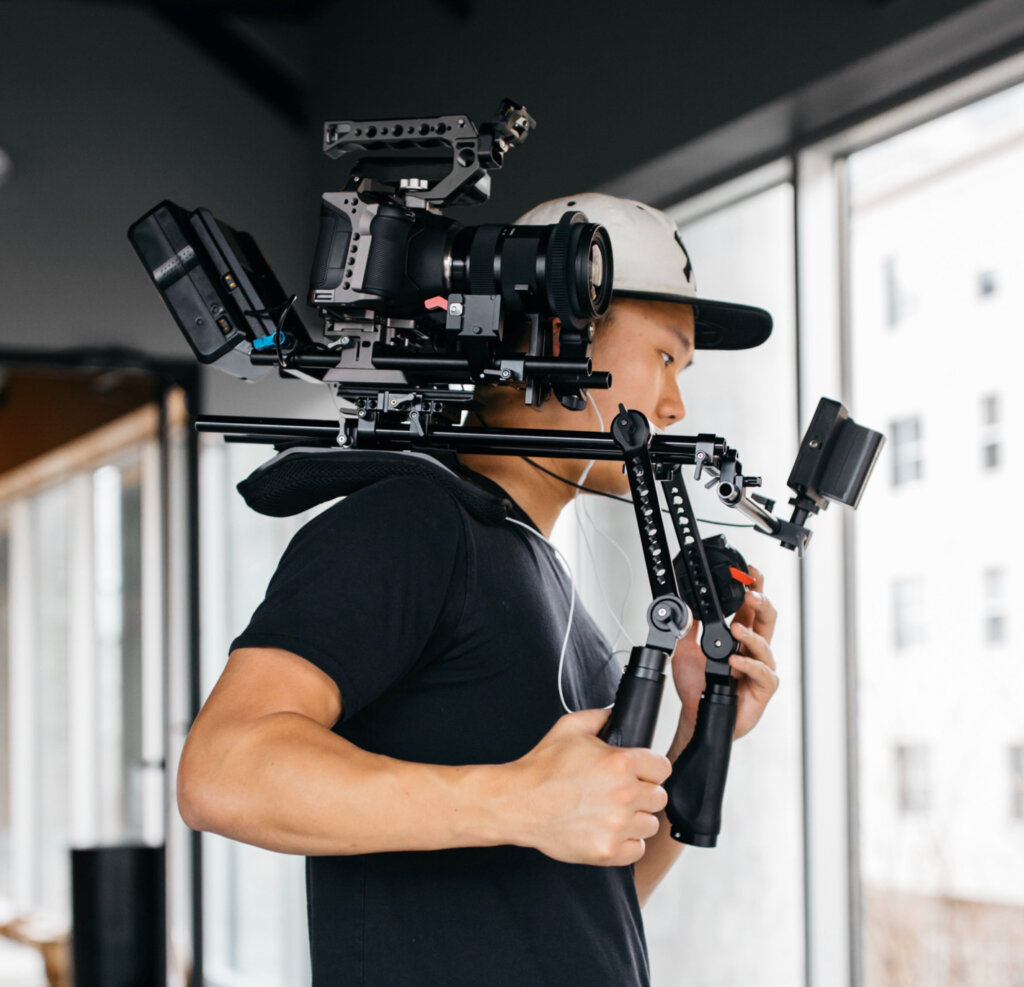
What is the most challenging aspect of being a filmmaker/creative?
The most challenging aspect of being a filmmaker and creative, especially early on, is just imposter syndrome and the comparison trap. A lot of people, when they’re first starting out and even when they’re well along in their career, there’s so much talent out there and we’re constantly comparing ourselves to one another, constantly stacking our work next to other work that we find inspiring. Getting above that and controlling your mind to stay in your lane and still work towards something great can be a challenge at times. And of course, now we live in a time where social media matters. Having a portfolio matters. So the challenging part, too, is not letting that consume you and still being able to creatively express yourself through photography, videography, films, music. It’s the challenging part of balancing business and creativity. And just depending on what your goals are, that definitely can be a hurdle in the early phases. Another challenging aspect can be, you know, being open to constructive criticism or feedback. All of us creatives, we hold art very close to the chest. But being open minded and just understanding that our work isn’t always going to be the best work that’s out there. But with that being said, you know, being open minded to other people who may be greater than us, who may be more talented than us, and then getting feedback on how we can improve and just being open to that feedback. Because the moment you feel like you have all the answers, you’re probably the smartest in the room. And everyone knows if you’re the smartest in the room, you’re in the wrong room.
What’s your favorite project that you’ve worked on? Or what are some of your favorite projects you’ve worked on?
Personally, my favorite project that comes to mind is the short film that I created on my friend, Ant Kai. He’s a shoe designer and artist who makes custom sneakers. And we did a short film on his creative process, why he got into it, how he got into it, etc. And of course, I used Musicbed songs as well on that. And overall, I think I love the message and I love the footage. And it’s the most accurate representation of where I am as a filmmaker right now and what’s important to me.
How do you search for music on Musicbed? What are some tips that you give other filmmakers to search on Musicbed?
Personally, for me, I love searching for the newest releases or maybe just what’s recently come out occasionally. Even when I don’t have projects, I will peruse through there just to see if I can find some songs that I can bookmark to use later. I think Musicbed has some of the most high quality music from any other platform. And truly something that I love about Musicbed is the ability to find similar tracks which is really great as well. And also the tagging, you know, the tagging is very thought out when I’m looking for a specific track for a specific mood. It’s very easy to find pretty much the perfect song in just a few clicks. But another tip I would say is just really figuring out the common terminology for specific types of songs. Are you typically the type that you find music through mood or you typically type that finds music through genre? Some people really focus on genres like hip hop, electronic, things like that. Some people are mood. You’re watching a video and you need to find a song based off its seriousness or based on if it’s lightheartedness. Figure out which type of person you are, which type of editor you are. And then from there, being able to find songs through the music library with those keywords will be very, very helpful.
Why do you utilize Musicbed in your work?
Personally, I utilize Musicbed in my work because I do think they have some of the most high quality music. And I don’t find myself needing to scroll too long to find the perfect song, which I love. Secondly, I love that Musicbed bats not just for the creators, but they also bat for the artists as well. You know, these musicians and artists take so much time to create the perfect song and they really respect that process as well. They want to make sure they get paid well. And so I love that Musicbed is serving both sides of the audience. And I really love that they care about the creator as much as they do. Also, it gives me that peace of mind that Musicbed has done their due diligence with licensing. And it’s nice to know that the client that I’m working with, they’re getting a high quality piece of music that is licensed properly for that given project. I also just love using Musicbed because it has some of the most high quality music. And even though we’re able to use it on our YouTube channel and on social content, it feels more premium than other platforms that I’ve used.
—
Explore Edward’s go-to songs for his videos in a curated playlist, all available to license only on Musicbed.















































































